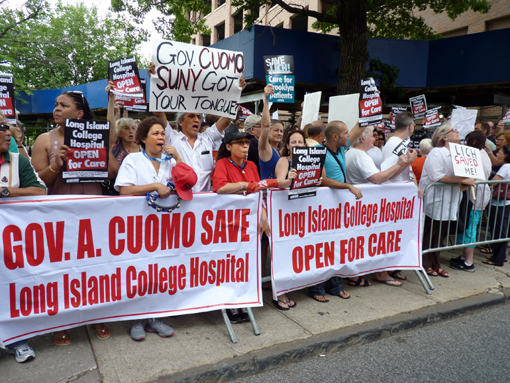Fallout from Brooklyn Hospital’s LICH bid continues
Need time to vet alternatives, LICH supporters say

b_LICH_rally2_MFrost_7-29-13.jpg
Brooklyn Hospital Center’s bid to buy Long Island College Hospital (LICH) and convert it to apartments and outpatient medical facilities, first reported in Crain’s New York and confirmed by SUNY, has drawn vocal opposition from LICH supporters who have been fighting for a year to keep the beleaguered hospital in Cobble Hill, Brooklyn open.
This latest proposal comes just a month after a similar bid by developer Fortis Property Group was tabled by SUNY.
The fact that other interested parties are now coming out of the woodwork after SUNY’s RFP (Request For Proposal) process has closed, LICH advocates say, shows just how flawed the process was in the first place.
